[This is the final part of a nine-part series. To read more, see Parts 1, 2, 3, 4, 5, 6, 7 and 8 here.]
Josef Olmert: Hello. This is going to be our ninth and last episode in the current series about Syria. And I need to start with a methodical comment, I should say, because people ask me, knowing that’s going to be the last episode in this series, as to, “Why didn’t you talk enough about that issue or about this issue?” And obviously, Syria is a complicated, diversified and very important country. There’s so much to talk about, so I promise that I will talk more about certain aspects of the Syria situation in another series or in a couple or three more video presentations later on, and I will announce it to my followers on Facebook, on YouTube and all that. So this will happen.
Western media and grounded reality
Now, about what has happened in Syria recently, I have to again and again emphasize the fact that the media in the West — I have to say it. It’s not a campaign I conducted against the media in the West, but I want my watchers, my listeners, my followers to know what really is going on in Syria. There are lots and lots and lots of troubles between Sunnis and Alawis. Mostly the Alawis are now the victims. And the videos that come out from Syria — and they are authentic, they are authentic — are very bad, are very disturbing and should arouse concerns about what really is happening. Also, there are videos that show clearly that despite the image that the leaders of the new regime, particularly Ahmed al-Sharaa or al-Julani, are trying to portray about moderation or a more realistic approach, there are signs of attempts to enforce religious behavior. You see more and more women with the hijab in a lot of the videos, as opposed to before. And there are stories about the enforcement to do so and so on. And of course, the problems between the Turks and the Kurds in the northeast of Syria continue to simmer. So there are lots of issues that put together form a picture of a very fluid, unstable situation in Syria that doesn’t necessarily come to the attention of the world media. And it should, because we need to know what’s going on. Otherwise we shall be again surprised, like we were surprised so many times before, or at least those who were surprised — not everybody was as surprised. So today, in our last episode of this series, I would like to make some very concrete comments about what’s happening and will happen in Syria in the foreseeable future.
Elections and representation
And let’s start with the question: What government is Syria? Is the current guys that are in Damascus — al-Julani or Ahmed al-Sharaa, the people around him — are going to be the government of Syria? Or there might be elections? I would say that we cannot see or foresee — and that’s maybe a prediction — a situation whereby Syria will be conducted by a group of people that were not elected for a period of time that will be more than, say, a few months or so. It’s not that Syria has a tradition of elections. They used to have elections in Syria. There were elections in 1949, 1954 that were relatively democratic. But they don’t have a tradition of elections. So if this group of people, if this coalition of Islamic or Islamist groups, will continue to rule Syria without elections, there will be troubles. There will be also troubles if there will be elections, and the results will be the usual in some Arab dictatorships — of the 99%. There’s not going to be 99% in the real elections in Syria. You know, it used to be under Hafez Assad, under Bashar Assad. And you know, Hafez Assad was elected president for seven years, the term was, and it was like 99.96%. And then seven years later, it was 99.97%. And people asked me at that time, “What’s going on?” I said, “Look, he’s become more popular — from 99.96 to 99.97.” But we know, of course, this was elections. So we’ll see what happens about that. My prediction is there won’t be real elections in Syria that will be democratic on the basis of one person, one vote. And if there will be elections, there will be sham elections. Real elections in Syria should reflect the cleavages of society according to religious, ethnic and other divisions. I’ll say, to some in surprise, “Look, in Iraq, there were relatively free elections after the fall of Saddam. Under the American supervision, but they were more democratic than any time in Iraq before and maybe in most Arab countries at any time.” And what they showed was the role of local forces, of ethnic groups, of religious divisions as part of the overall new political fabric. Civil wars in countries like Iraq or Lebanon or Syria brought about a real breakup of society according to bases of loyalty that were primordial, traditional. And at the time of conflict, people went back to the original basis of their social and therefore political loyalties. And that was reflected, at least in the case of Iraq, in the results of elections. So if there will be real elections in Syria, there should be representation for people representing different regions, even within the Sunni community. And there are differences between Hama, Homs, Aleppo and Damascus. There are many differences. Regionalism is very significant. There will have to be representation for the various communities: the Kurds; the Druze; the Alawis, of course, they should be represented; the Ismailis, which is a Shia sect; the various Christian groups. And there are quite a few: Armenians, Assyrians, alongside the Greek Orthodox and the Greek Catholics of Syria and others. The Turkmen — there are lots of Turkmen people in the north of Syria, more than what people know about, over a million. It’s a large group of people. And the Turks will take care and they will be represented. So that remains to be seen, and that will be a test. So to sum up this point, there are not going to be real democratic elections in the foreseeable future. And if there will be elections, and the results will be the usual 90-whatever, you know it was sham elections. Real elections will show all those divisions that I talked about. They will have to show them if they are really real.
Islamization and social tensions
Islamization will be significant, even if these people claim to be more moderate, which is very logical for them to say and do and very clever politically, because they need to show a nicer face in order to be able to then talk to other governments and ask for economic aid or any of those, or political aid, diplomatic aid, diplomatic support. There will be definitely an Islamization in society that again will create issues with the religious minorities. Arab Sunnis in Syria are 55 to 60%. That means 40 to 45%, definitely around 40, are not Sunni Arabs. And any Sunni Islamization process that will be enforced from above is bound, therefore, to cause troubles. Very obvious it’s going to happen.
Regional relations and internal divides
When we talk about foreign relations of Syria, obviously Iran is out of the game. The question is the level and the depth of Turkish support to the new regime and influence over it. And we talked a lot about the Turkish part of all this. Iraq, neighboring country, Sunni Arab minority. Will they be encouraged by the new regime in Damascus? Possibly. Not necessarily going to happen. My prediction: will not be a major factor. More important is the connection between the Kurds in Syria and Iraq. That could be a much bigger problem for both the Syrians and the Iraqis. The Druze in the south will not like to separate themselves in any formal way from the Syrian state. Never mind what some agitated Israelis have in mind about that. It’s not going to happen. But I can see, and I believe it will be, an informal Israeli zone of influence in parts of south Syria bordering with Jordan as well, inhabited by the Druze of the Jabal, of the mountain, that will make sure, from their perspective, because of their interest, that the border will not become a zone of hostilities between any government in Damascus and Israel. And that will be a difference from what it was when the Assad regime was so much dominated by Hezbollah, the Iranians, that tried to turn the Syrian side of the Golan Heights into a zone of conflict with Israel. And what Israelis are doing in Syria or have done in Syria to destroy any presence of hostile elements in those areas of Syria was intended to make it easier for the local forces that are there to keep stability along the border, which will be their interest. The real problem will be between the regime in Damascus and the Alawis. Killing Alawis in the streets now, of cities in Syria which are not Alawi-dominated, is terrible. It’s one thing, though. Trying to invade the mountains and really take over the entire mountainous region of the Alawis and then enforce a regime upon them would lead to a bloodbath, to a real major bloodshed. It hasn’t yet happened. Hopefully, it will not happen. But then the question is, what will be the representation of the Alawis in the new regime, in the new parliament that will be in any body of influence in the country? It will be very small. And you can’t ignore a certain percent of the population if you adapt to this. Also the 2% of the Ismailis — about 50% that are closer to Shia Islam than to Sunni Islam.
Sectarian dynamics, regional influence and outlook
And, of course, the question of the relation between Syria and Lebanon. In a famous speech in 1976, when Hafez Assad justified the Syrian invasion of Lebanon during the Lebanese civil war at that time, he said in simple words, Syria and Lebanon is one country, is one nation. That’s the typical Greater Syria approach that was adopted by the Ba’ath regime, even though originally, it is the approach of the Syrian Social Nationalist Party of Antoun Saadeh, the SSNP, that was mistakenly in French called the PPS. It’s not the right acronym in Arabic. The Syrian regime now will have to let the Lebanese conduct their affairs by themselves, and they will have to leave Lebanon for itself. Lebanon will have its own problems. We don’t talk about Lebanon now. They elected a new president, he talks a lot about changes, and all this remains to be seen. We always have to take with a grain of salt what Lebanese politicians say, particularly after they are elected. But that remains to be seen. So Syria and Lebanon will not be one country, one nation. And that also depends on the Iranians. If Iran is not allowed to move anymore from Iraq via Syria to Lebanon, the Iranian influence in Lebanon will have to be weakened, and will be weakened. And it will be not totally destroyed. There are Shias that are always supporters of Iran — many of them — but it will be decreased dramatically. And it also depends on Israel, how Israel would tolerate or not any attempts to recreate connection between Syria and Lebanon that would have also adverse repercussions on the border between Lebanon and Syria. Now we come to the last point about this — foreign affairs — and this is the role of the powers. Russia is out of the game. There are talks about, if vacuum created by the absence of Russia, China will move in. Remains to be seen, I doubt it. There’s an opening here for other countries. The question really is, who would fill the vacuum? Mostly, initially, it will be by Turkey. But the Turks cannot do in Syria what everybody said that they intend to do. They don’t have the funds, the financial resources, the economic resources rather, to reconstruct Syria. That will have to come from the Gulf countries, which as of now keep their hands off. They’re very careful and will remain careful for time to come. And, of course, the role played by the US. What will the Trump administration do? Surely, they have to make sure that the Kurds’ virtual autonomy in the northeast will be maintained, but to try and do it in a way that will prevent Turkish–Kurdish war. That remains to be seen. I doubt whether the Trump administration will invest too much money in Syria or at all. So we are going back to the EU. Somebody will have to put some money because Syria is a ruined, destroyed country after all those years of civil war. And if you don’t rehabilitate, reconstruct, rebuild Syria, there will not be stability there. Doesn’t matter who rules the country. As of now, we hear statements from the Europeans about the desire to accommodate themselves to the new regime. And al-Julani shows how moderate he is, and visits by the German and French foreign ministers and all this. But in the meantime, no money is coming, and money will be the key here. I will leave you with that, because we can go on and on like this. But the picture coming or emerging — isn’t that the main point? Syria is in a very bad situation. Rehabilitating, rebuilding a country after such an atrocious civil war is not a simple matter. And even if you can establish some political institutions that will be considered representative, to rebuild the relationship between the various communities is another story altogether. The same problem in Iraq. We have the same problem in Lebanon. We have the same problem in Libya. We shall have troubles in Syria. We shall have troubles by Syria. We shall have troubles connected with Syria. And therefore, there will be more talks from me, more presentations, but not immediately. I will let you know when we shall do more. So I will leave you with that. Sometimes people like an end to a story like this to be a happy end. The history of Syria over 100 years is not a happy history. I have no reason to believe that we are witnessing now a dramatic departure from traditional Syrian history, unfortunately. Thank you, my friends.
[Lee Thompson-Kolar edited this piece.]
The views expressed in this article/video are the author’s own and do not necessarily reflect Fair Observer’s editorial policy.



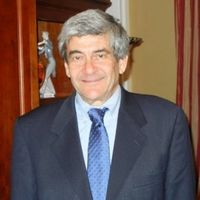

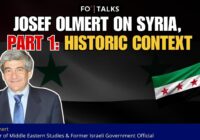


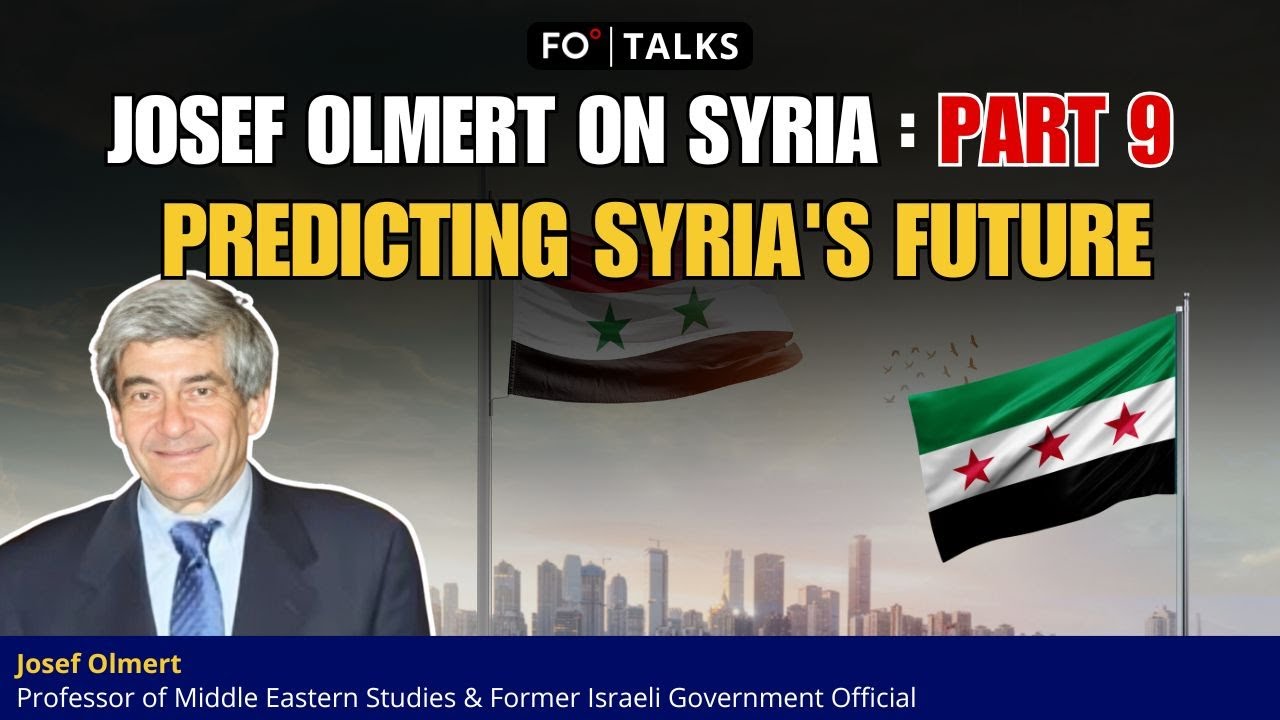




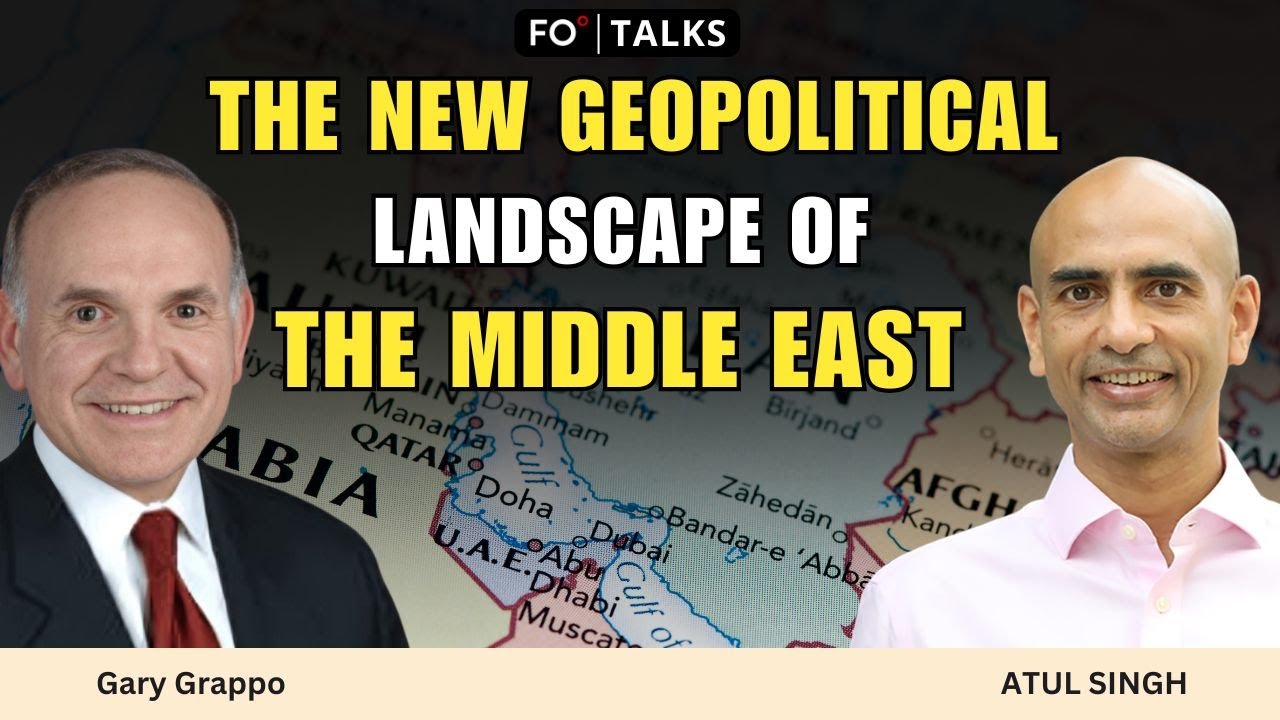




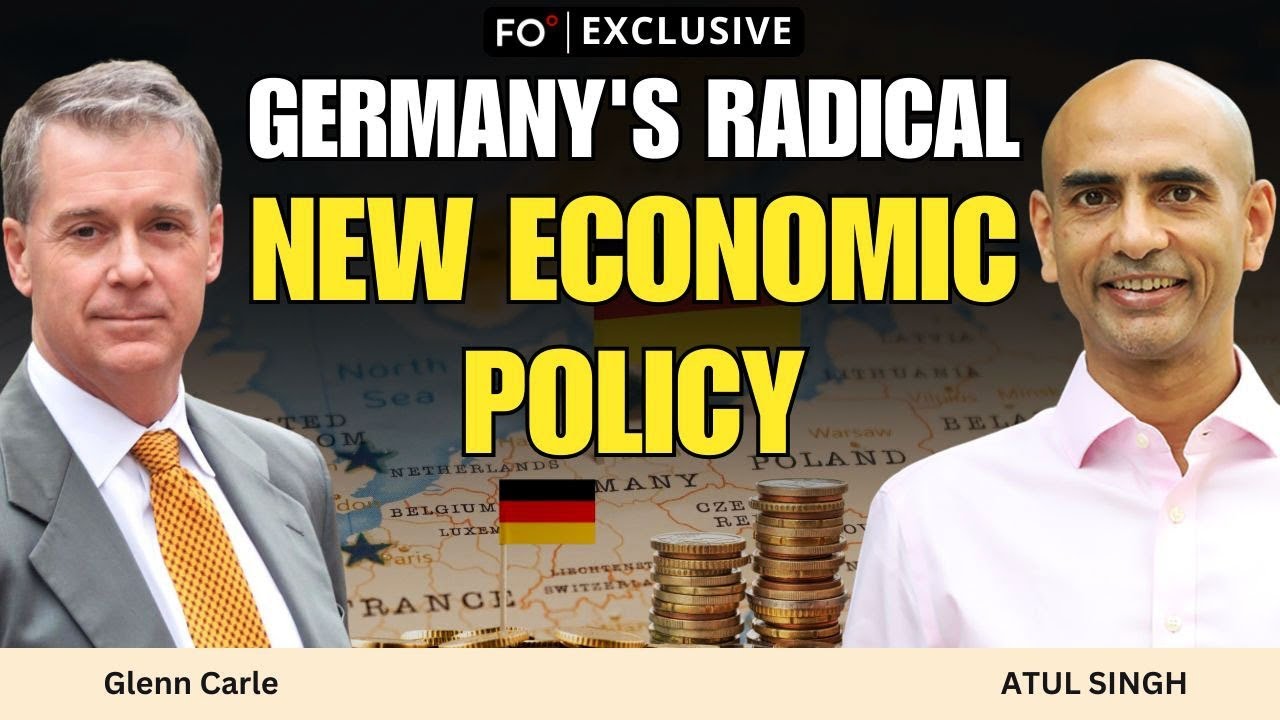
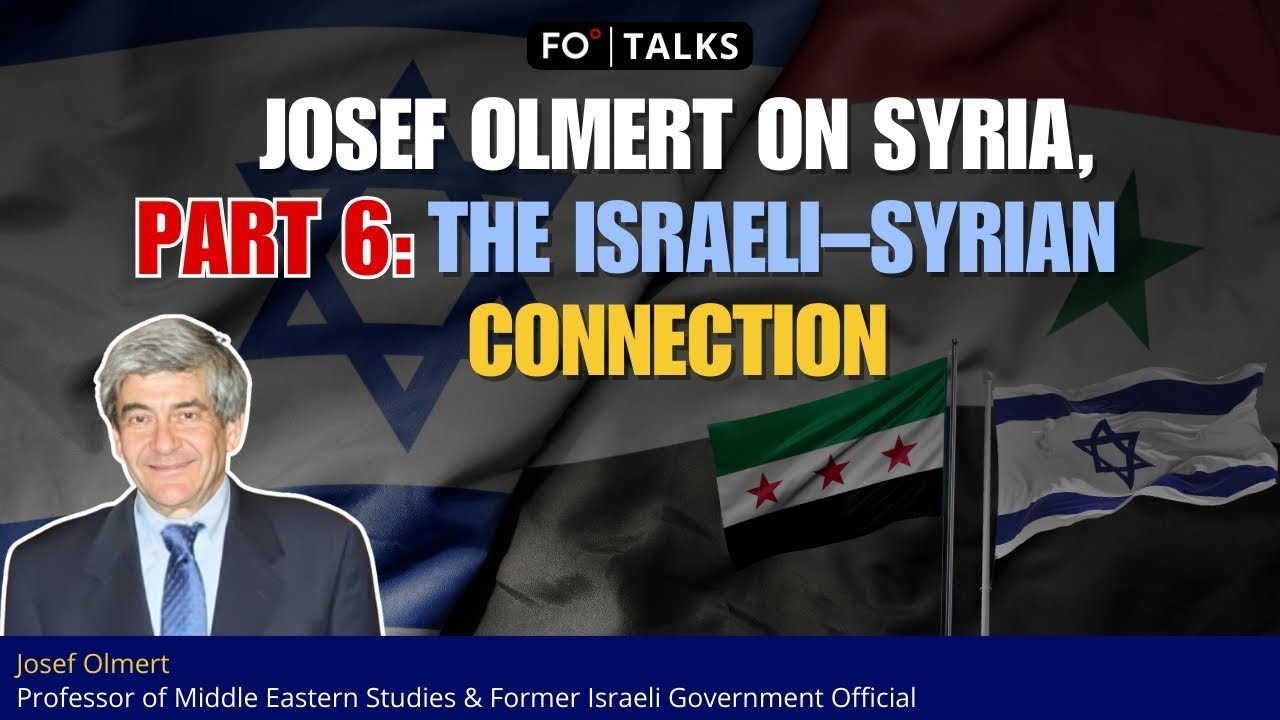
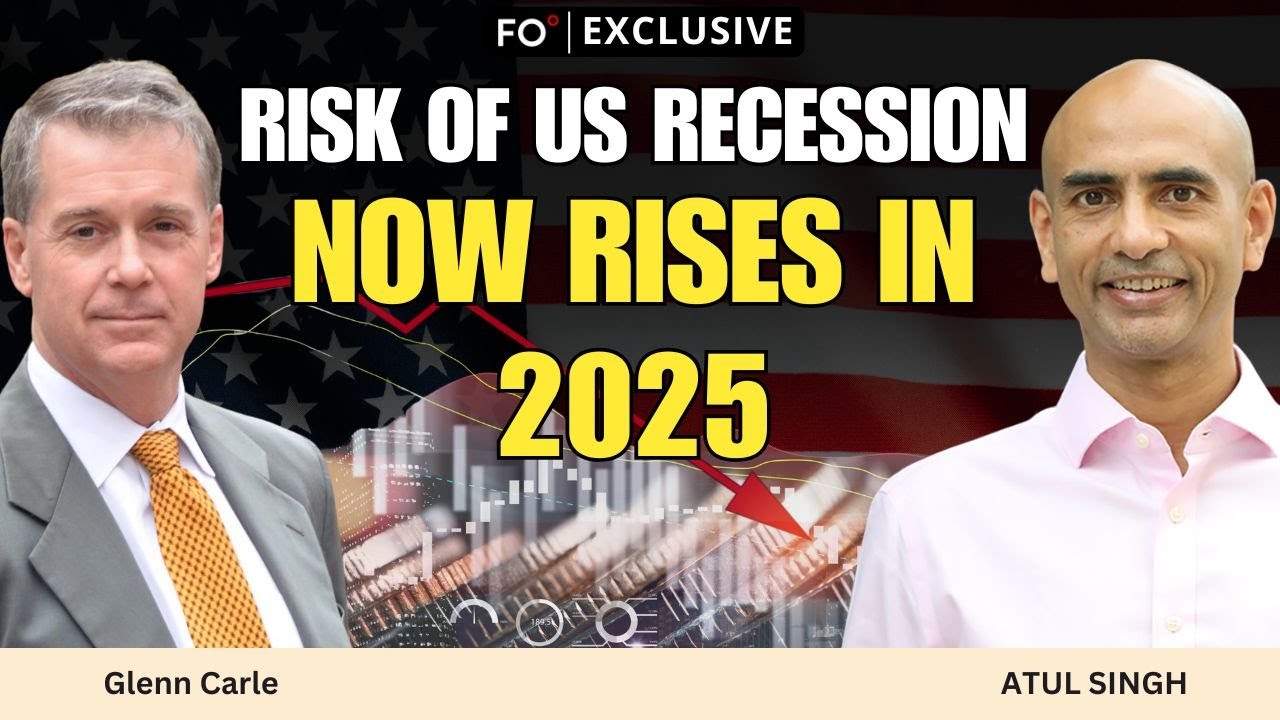


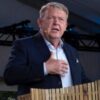
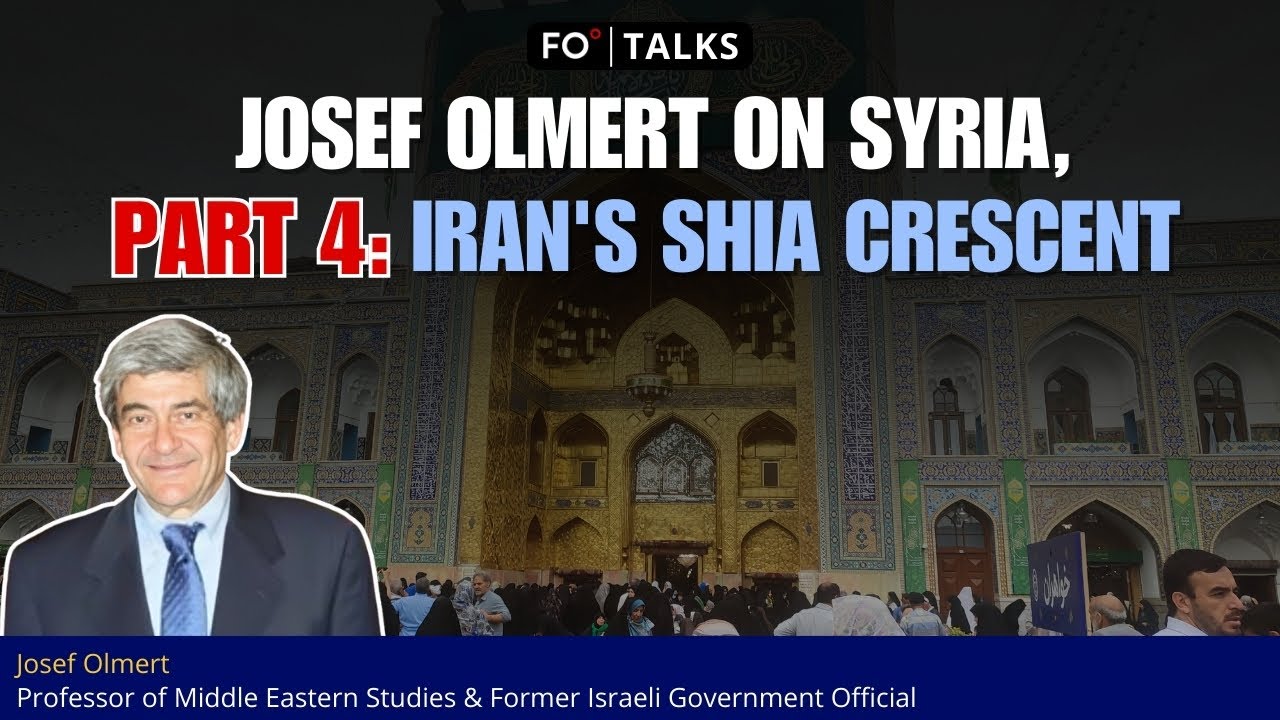

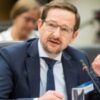












Comment